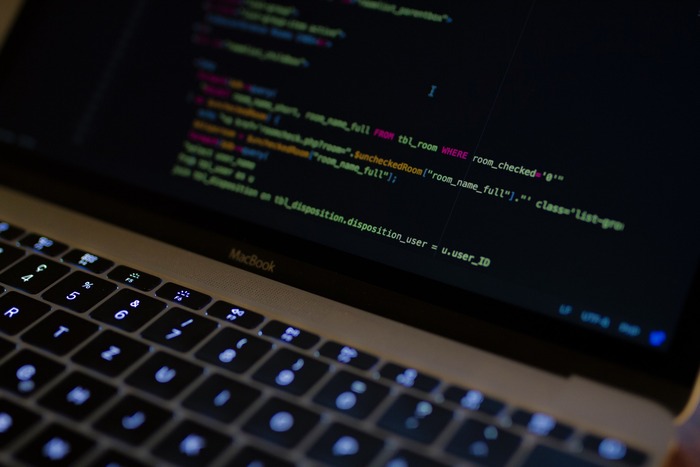While remote work was once a rare phenomenon enjoyed by few employees, today, it’s grown to become a normalized process in companies across the world. Coders in particular are a group of professionals whose work lends itself well to remote work, making it incredibly common in the programming industry.
However, though the act of coding lends itself well to remote work, collaborating on coding projects remotely can present a number of challenges. Gaining perspective on some of the biggest challenges coders face when collaborating remotely and ways these problems can be solved can provide one with a deeper understanding of the coding industry in today’s evolving world.
Here are remote collaboration challenges for coders and how to overcome them.

Communication Problems for Remote Coding Teams
When it comes to bigger, worthwhile projects, whole teams of coders are typically needed to complete projects. Unfortunately, the bigger the scale of the coding project, the more difficult it can be to facilitate effective communication among virtual teams. A lack of effective communication in these instances can result in projects taking longer to complete and having increased numbers of bugs and issues.
Given that coding is a complex task, it’s key that various coders collaborating on a project understand each other’s work. If there are misunderstandings, coders may inadvertently spend copious amounts of time and effort working in ways that are ultimately unnecessary. As such, communication is a key aspect of successfully pulling off coding projects that involve multiple remote coders.
To ensure that poor communication doesn’t hamper or negatively affect projects, there are some key practices that remote coding teams should engage in. These include:
- Establishing clear communication channels: Whether it’s an email chain, a slack channel, or a Google doc, it’s key for remote coding teams to have clear communication channels. There should be a main channel for all communications relating to coding and it can be helpful to have other communication channels for less important communications.
- Having frequent meetings: Frequently having meetings in which everyone is present is essential for remote coding teams. By opening up communication in this way, everyone can rest assured that all coders are on the same page in terms of the project.
- Making communication commonplace: If remote teams aren’t communicating openly, it’s likely that the project will suffer in a number of ways. To avoid these types of setbacks, remote coding teams should foster a culture of open communication in which everyone is comfortable reaching out to teammates at any time.
Coordinating with Coders in Different Time Zones
For many coding teams, coders can be located in not only different parts of countries but on different continents. This means that different individuals are in different time zones, which can make coordination somewhat difficult. When team members aren’t coordinating effectively, it can easily result in duplicated work along with frequent miscommunications.
Unfortunately, there are times when there isn’t a clear fix to this problem. The truth is some team members will have to agree to have inconvenient meetings that may be in the middle of the night or early in the morning for them. However, there are ways to ensure that everyone is on the same page.
At the outset of any remote coding project, it’s important to establish which times everyone needs to be made available. Though it may not be ideal for some, having a clearly indicated time when everyone is open for communication is key for effectively completing coding projects.
In addition, it can be democratic to decide upon times that are the most convenient for the coders on the team. This way, no one will feel like they are unjustly being inconvenienced.
Establishing Trust in Remote Coding Teams
For remote coding teams to work at the best of their abilities and produce great work efficiently, trust is key. If some team members don’t trust others, it will likely manifest in harmful ways that end up making the project take longer than it has to.
It can sometimes be difficult for remote coders to build trust with others that they’ve never worked before. While there are instances of the same teams working on multiple projects together, working with others one has never worked with before is also common in coding projects. As such, it can sometimes be difficult to get everyone on the same page.
Thankfully, there are ways to build trust among remote coding teams. Essentially, it boils down to allowing team members to interact and get to know each other. Before beginning projects, remote coding teams should have opportunities to communicate and get to know each other so that they can work together on good terms.
The more opportunities remote coding teams have to build trust, the easier it will be for them to be productive and efficient. As such, cultivating a culture of trust among remote coding teams is vital for the effective execution of remote coding projects.
Good Practices for Remote Coding Teams
While many people pursue a career in programming for the flexibility and lucrative coder salaries, many are unaware of some of the challenges that can arise from working remotely. Thankfully, there are some helpful practices that coders can engage in to ensure that they’re working well with their remote teammates.

Here are some good practices for remote coding teams.
Set Clear Goals
One of the most important things to establish when working with a remote team is clear goals. This includes the overall goal and outcome of the project along with smaller goals. In addition, it’s essential to have a clear timeline for achieving these goals. By having clear goals, all team members can be sure that they’re working toward the same aims throughout the duration of the project.
Regular Check-Ins
When working remotely, it can be difficult to know how everyone is feeling. While text communications, such as emails and Slack messages, can be useful, they’re not always as effective as conversational communications. For this reason, it’s vital that team leaders consistently check in with coders via calls or video calls to gain a deeper understanding of how everyone is feeling. By doing so, leaders can ensure that everyone is on the same page and feeling good about their work on the project.
Fostering Positive Work Culture
Though it may not seem like a significantly important aspect of remote projects, the truth is that fostering positive work culture can make a significant impact on project outcomes. When coders feel like they’re part of a negative work culture, they’ll likely deliver work that isn’t at their highest potential. As such, ensuring that everyone feels supported and heard is a key aspect of successful projects that involve remote coding teams.
Remote Coding Challenges Can Be Overcome
While there are obstacles that can arise when coders collaborate remotely, there are ways that these difficulties can be overcome. In addition, by engaging in some key practices, remote coders can ensure that they’re performing at their highest potential. As time goes on and remote work becomes more commonplace, it’s likely that all remote coders will develop more effective solutions to challenges that arise from working remotely.